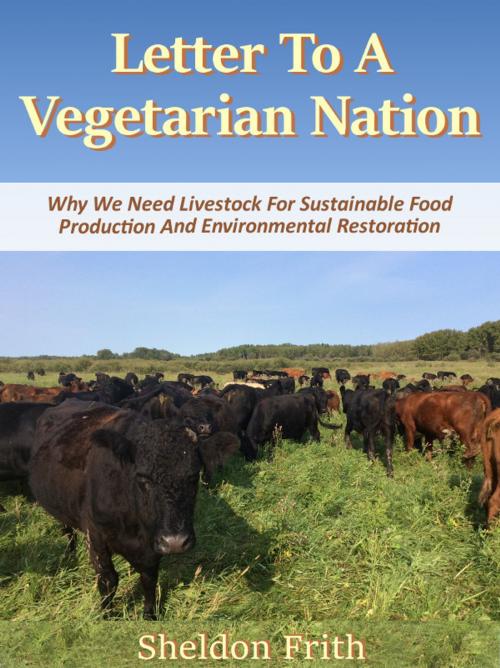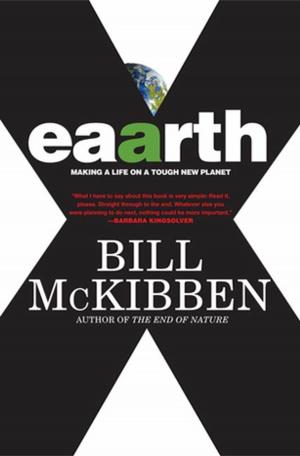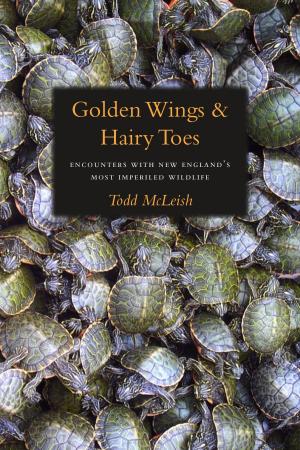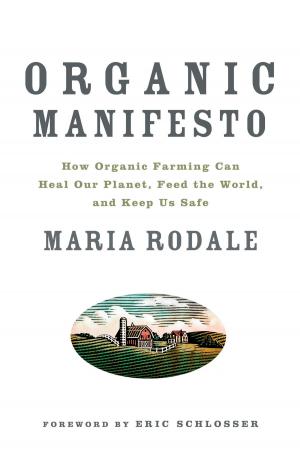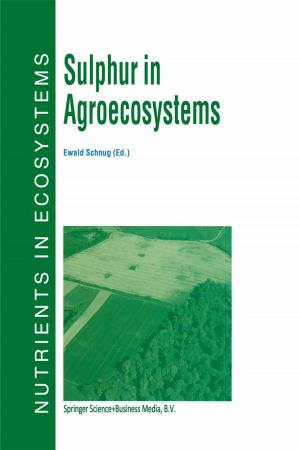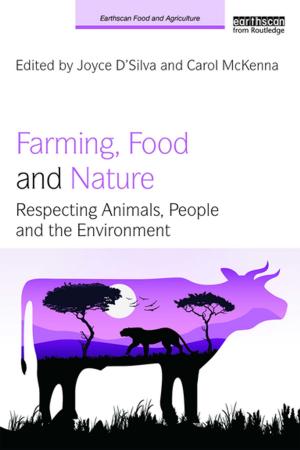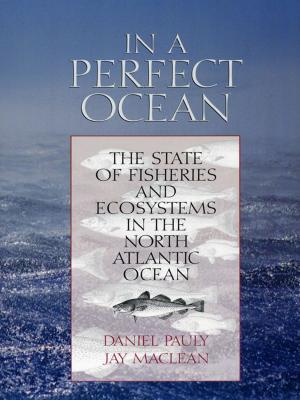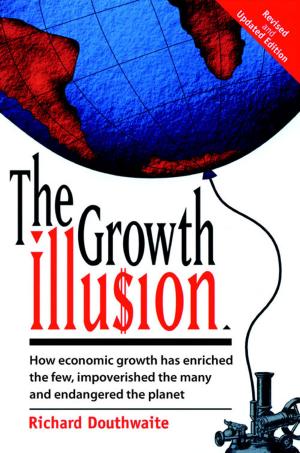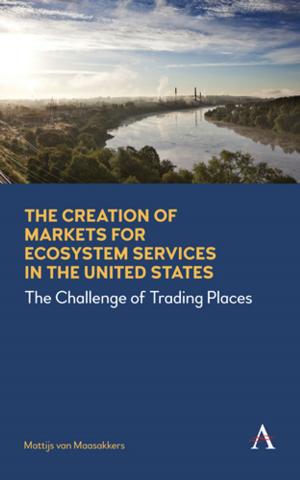Letter To A Vegetarian Nation
We Need Livestock For Sustainable Food Production And Environmental Restoration
Nonfiction, Science & Nature, Nature, Animals, Animals Rights, Technology, Agriculture & Animal Husbandry, Environment, Environmental Conservation & Protection| Author: | Sheldon Frith | ISBN: | 1230000932967 |
| Publisher: | Sheldon Frith | Publication: | February 7, 2016 |
| Imprint: | Language: | English |
| Author: | Sheldon Frith |
| ISBN: | 1230000932967 |
| Publisher: | Sheldon Frith |
| Publication: | February 7, 2016 |
| Imprint: | |
| Language: | English |
The debate about animal agriculture will never be the same again. Sorting out whether livestock and meat are good or bad, among the thousands of contradictory opinions, can be an overwhelming task. This book makes it easy.
“Letter To A Vegetarian Nation” is a meticulously researched and thoroughly logical analysis of why livestock are actually essential for sustainable food production and environmental restoration. No matter how much we might like to live in a world without livestock and meat eating, this book proves that it is simply not possible. The arguments in this book could not have been made convincingly in the past, but new information has come to light in recent years which changes everything. Unraveling the web of issues and arguments surrounding veganism and vegetarianism becomes much easier after reading this book.
Testimonials
“Sensible solutions for sequestering carbon and restoring equilibrium to our ailing ecosystems. It is well researched and presented without the usual hyperbole and drama often found in the “latest answer” to the challenges we face. Provides excellent, rational arguments refuting the prevailing dogma from the vegetarian/vegan proponents with numerous historical and current examples. Quite accessible writing style, short illustrated chapters backed up with reference links, tables and photographs… As a practicing student of permaculture, retired small holding farmer I believe with this knowledge we can recreate manageable harmony with Gaia’s ecosystems by following this pattern. Recommended for anyone working the land, growing food and concerned about the future.” – Clive Michael
This book provides:
- Over 120 peer reviewed references to give you confidence in the book and also to help you when youare debating others.
- Over 100 links to awesome resources on Regenerative Agriculture. These resources will be invaluable if you want to become more informed about the revolution that is currently sweeping agriculture, or if you actually want to practice Regenerative Agriculture yourself.
- A thorough glossary, which explains every uncommon term used in the book, so you don’t have to get a degree in soil science or agriculture to understand this book.
After reading this book you will have a more in-depth and clear understanding of soil science, regenerative agriculture, and livestock management than the vast majority of humanity. You will also learn to reduce your carbon footprint by buying meat!
Overview
1. Sustainable civilization requires regenerative agriculture.
2. Regenerative agriculture is possible, and is already taking over.
3. Regenerative agriculture relies completely on a healthy soil food web.
4. Livestock are necessary to maintain the health of the soil food web.
5. These livestock must be properly managed.
6. In brittle environments livestock are even more necessary.
7. Wild animals can no longer perform the functions required.
8. Technology cannot sustainably replace livestock on a large scale.
9. Vegan farming cannot sustain human civilization.
10. Livestock are essential for combating climate change.
11. Animal-centric ethics suggest that we should include livestock in agriculture.
12. We need large numbers of livestock.
13. These livestock will die.
14. Death via humans is the most humane option for these livestock.
15. Eating these livestock is the best thing to do with their bodies after death.
The debate about animal agriculture will never be the same again. Sorting out whether livestock and meat are good or bad, among the thousands of contradictory opinions, can be an overwhelming task. This book makes it easy.
“Letter To A Vegetarian Nation” is a meticulously researched and thoroughly logical analysis of why livestock are actually essential for sustainable food production and environmental restoration. No matter how much we might like to live in a world without livestock and meat eating, this book proves that it is simply not possible. The arguments in this book could not have been made convincingly in the past, but new information has come to light in recent years which changes everything. Unraveling the web of issues and arguments surrounding veganism and vegetarianism becomes much easier after reading this book.
Testimonials
“Sensible solutions for sequestering carbon and restoring equilibrium to our ailing ecosystems. It is well researched and presented without the usual hyperbole and drama often found in the “latest answer” to the challenges we face. Provides excellent, rational arguments refuting the prevailing dogma from the vegetarian/vegan proponents with numerous historical and current examples. Quite accessible writing style, short illustrated chapters backed up with reference links, tables and photographs… As a practicing student of permaculture, retired small holding farmer I believe with this knowledge we can recreate manageable harmony with Gaia’s ecosystems by following this pattern. Recommended for anyone working the land, growing food and concerned about the future.” – Clive Michael
This book provides:
- Over 120 peer reviewed references to give you confidence in the book and also to help you when youare debating others.
- Over 100 links to awesome resources on Regenerative Agriculture. These resources will be invaluable if you want to become more informed about the revolution that is currently sweeping agriculture, or if you actually want to practice Regenerative Agriculture yourself.
- A thorough glossary, which explains every uncommon term used in the book, so you don’t have to get a degree in soil science or agriculture to understand this book.
After reading this book you will have a more in-depth and clear understanding of soil science, regenerative agriculture, and livestock management than the vast majority of humanity. You will also learn to reduce your carbon footprint by buying meat!
Overview
1. Sustainable civilization requires regenerative agriculture.
2. Regenerative agriculture is possible, and is already taking over.
3. Regenerative agriculture relies completely on a healthy soil food web.
4. Livestock are necessary to maintain the health of the soil food web.
5. These livestock must be properly managed.
6. In brittle environments livestock are even more necessary.
7. Wild animals can no longer perform the functions required.
8. Technology cannot sustainably replace livestock on a large scale.
9. Vegan farming cannot sustain human civilization.
10. Livestock are essential for combating climate change.
11. Animal-centric ethics suggest that we should include livestock in agriculture.
12. We need large numbers of livestock.
13. These livestock will die.
14. Death via humans is the most humane option for these livestock.
15. Eating these livestock is the best thing to do with their bodies after death.
